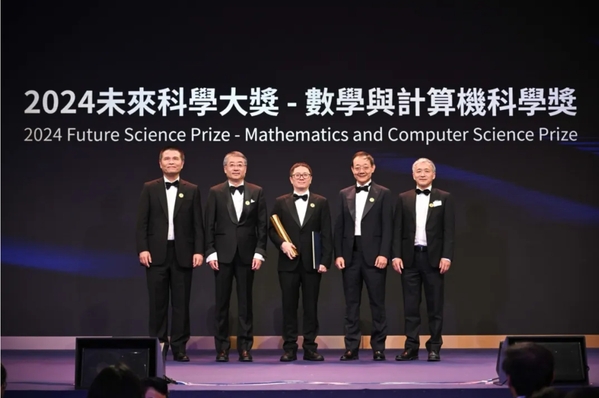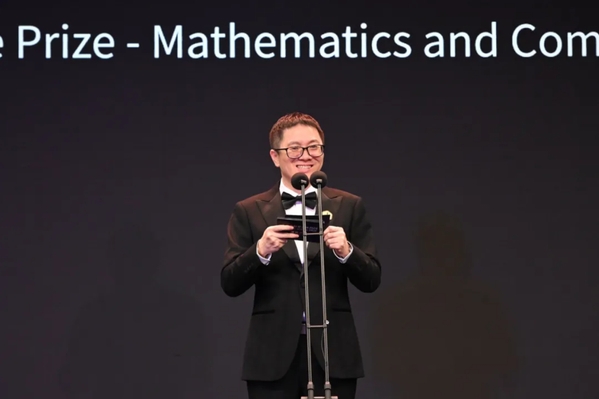SUN Binyong wins 2024 Future Science Prize in Mathematics and Computer Science
The 2024 Future Science Prize award ceremony took place on November 3 at the Hong Kong Convention and Exhibition Centre, celebrating groundbreaking achievements in science.

SUN Binyong, a prominent mathematician from the Zhejiang University Institute for Advanced Study in Mathematics, was awarded the 2024 Future Science Prize in Mathematics and Computer Science for his exceptional contributions to the representation theory of Lie groups.
Sun’s work addresses several long-standing problems in mathematics.
His first major achievement lies in establishing the multiplicity one property for representations of classical Lie groups. Initially tackled by E. Cartan and H. Weyl in the compact case, Sun and his collaborator ZHU Chengbo extended this to the non-compact case. Their innovative approach solved this longstanding conjecture, laying the groundwork for relative representation theory and contributing to fundamental conjectures by Gan-Gross-Prasad.
His second major contribution is the theory of theta correspondences, a crucial method for studying automorphic forms across different groups. Sun and Zhu notably provided rigorous proof of Kudla and Rallis’s conjecture regarding the non-vanishing of theta lifts in certain towers, significantly advancing the field.
Sun also proved the non-vanishing of period integrals for cohomological test vectors in Rankin-Selberg convolutions. This result, originally proposed by Kazhdan and Mazur in the 1970s, confirms their explicit computation and resolves a long-standing question in archimedean integrals.

In his acceptance speech, Sun reflected on his journey in mathematics, expressing his heartfelt gratitude for the support of his parents, the guidance of his teachers, and the fruitful collaboration with his colleagues. He also praised the establishment of the Future Science Prize in Mathematics and Computer Science.
“Chinese mathematics has made remarkable progress in the 21st century,” Sun said. “Many mathematicians born in the 1980s are now at the forefront of their respective research fields worldwide. I look forward to seeing the next generations of Chinese mathematicians, born in the 1990s and 2000s, achieve even greater heights.”
Jointly initiated by scientists and entrepreneurs in 2016, the Future Science Prize recognizes significant contributions to fundamental scientific research. It consists of three categories: Life Science, Physical Science, and Mathematics and Computer Science. There have been 39 winners recognized so far.